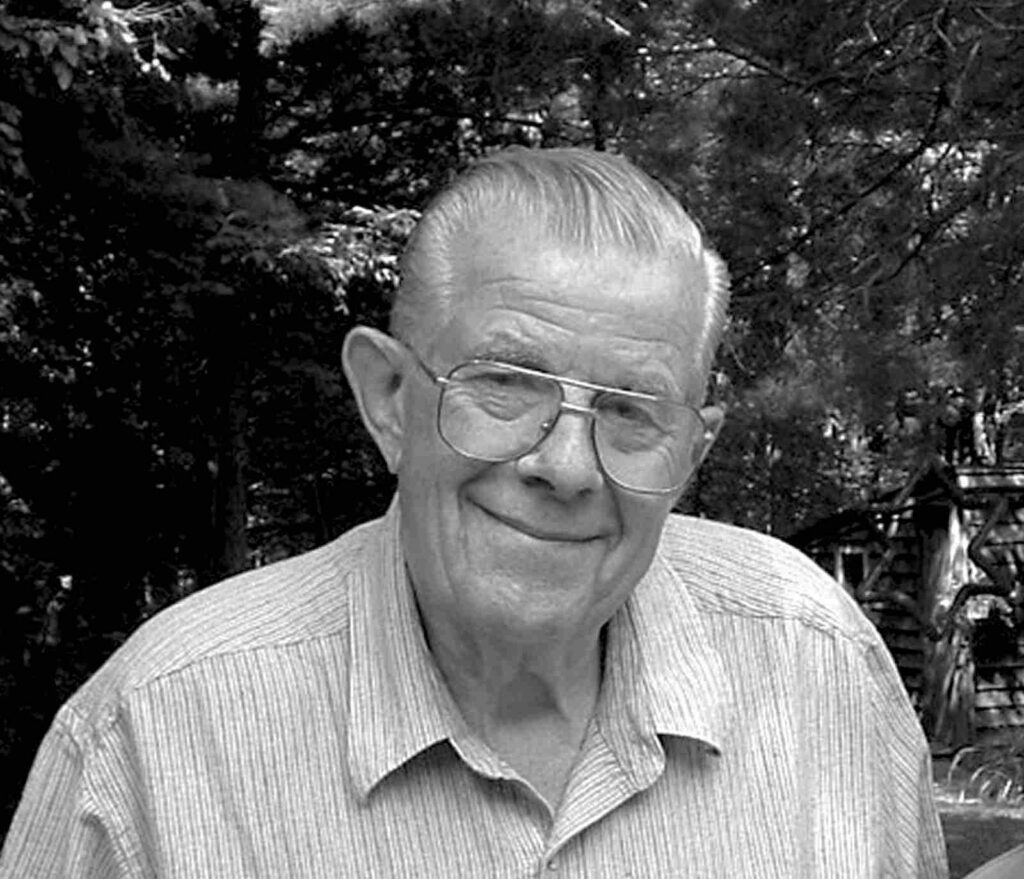On April 28, 2011, the Rhode Island Natural History Survey honored Alfred L. Hawkes with its Distinguished Naturalist Award at the Survey’s 15th annual conference, “Science and Management of Salt Ponds and Coastal Lagoons,” held at the Quonset O Club in North Kingstown. Larry Taft, executive director of the Audubon Society of Rhode Island (ASRI) and member of the RINHS Board of Advisors, presented the award, calling Al Hawkes “the state’s environmental conscience for more than a generation.”

Alfred Hawkes began his environmental contributions as an educator, first in Maryland and then at Massachusetts Audubon before settling at the Audubon Society of Rhode Island in 1955. He became the executive director of Audubon Society of Rhode Island in 1958 and served in that position until 1993. It is important to remember that with such an extraordinary, 35-year long tenure, Hawkes is a bridge back to a time when rivers burned, DDT was an industrial miracle, and the environmental movement in Rhode Island was barely a glimmer of what it is today. When Hawkes took the helm of the Audubon Society of Rhode Island, it was the only conservation organization in the state with paid staff, there was no Rhode Island Department of Environmental Management, and there was no national endangered species act, no clean water act, and no Environmental Protection Agency.
Hawkes didn’t just rise with the modern environmental movement, he predated much of it and helped shape it. He played a prominent role in the signature environmental causes of the twentieth century, including battles to regulate pesticides and water pollution and conserve wetlands as a public resource. He fought to limit nuclear power development and helped give rise to the land trust movement. As a founder of the Environment Council of Rhode Island, he helped the environmental community acquire its unified voice in support of the new federal environmental laws. He played a major part in the decision against a nuclear power plant in Charlestown, against the construction of a reservoir in Big River, and for the conservation of land throughout the state. He worked with then Governor John Chafee to establish the Green Acres program responsible for the first acquisitions of land at Colt State Park and substantial improvements at Goddard Memorial State Park. He spear-headed the Rhode Island Natural Areas Survey, part of a national effort to identify significant biological, botanical and geological sites, and a precursor of both the Rhode Island Natural Heritage Program and the Rhode Island Natural History Survey.
Lest the emphasis on big causes give an erroneous impression of a charismatic leader of grand gestures, it is important to appreciate that Al Hawkes traded on a dignified but affable manner that allowed him to work effectively within the local circles of power, with local politicians, agency personnel, and philanthropists. His background in education seems to have served him well as he was good at explaining extended chains of interest that relate environmental and social needs to each other and thus persuading politicians to support his positions. The sense of confidence, caring, and trustworthiness that he projected reassured potential donors of land and money. As effective as he was, though, Mr. Hawkes would be the first person to deflect credit for any accomplishments to others, a sign of his true leadership qualities.
During his tenure, the Audubon Society of Rhode Island instituted many of its signature programs: the Block Island Birding Weekend and Rhode Island Bird-a-thon, the Great Expeditions tours, and its membership newsletter, the ASRI Report. Hawkes set a goal for the Audubon Society to increase natural history education by creating a refuge within 20 minutes of every school in the state, and the number of staffed refuges grew under his administration. He oversaw the development of the present headquarters at the Powder Mill Ledges Wildlife Refuge in Smithfield. Hawkes continues to assist Audubon Society of Rhode Island, serving as a member of its Board of Advisors.
The importance of Al Hawkes as a Rhode Island naturalist is emphasized by the naming of Rhode Island DEM’s most prestigious public recognition of environmental achievement after him. The Alfred L. Hawkes Award for Conservation and Environmental Accomplishment is given by DEM in acknowledgement of those who have “with uncommon effort, immeasurably advanced the preservation, protection, and enhancement of the natural resources of our state.” This is a good and fitting description of Al Hawkes himself.
We award Al Hawkes the Rhode Island Natural History Survey’s most prestigious award and name him a Rhode Island Distinguished Naturalist. This award is given to individuals who are outstanding in a very particular quality that characterizes natural history: the application of scientific knowledge about an ecosystem and its components to its management and conservation. The connection between understanding and action was conspicuously absent from so much of our society when Al Hawkes began his service to the Audubon Society and to Rhode Island. But he understood that this was a harmful disjunction and what he did in the subsequent years of accomplishments small and large was to educate us to the importance of the naturalist’s perspective, demonstrate its value, and help make it part of our culture, as it is today. This is indeed the work of a distinguished naturalist.